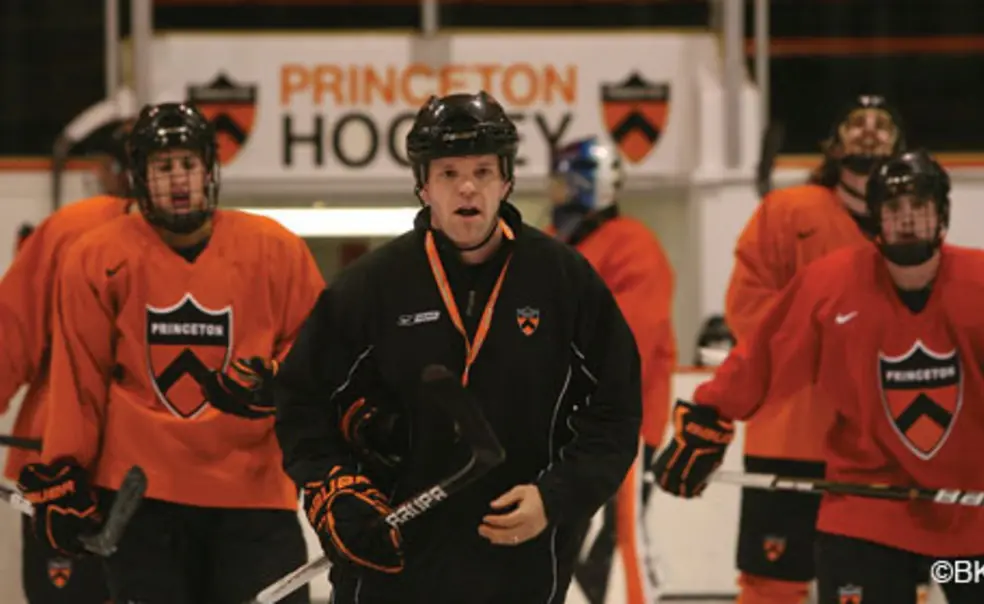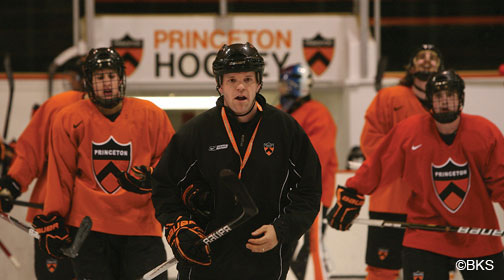New hockey coach Prier seeks fundamentals, competition
Twelve years ago, men’s hockey coach Bob Prier was playing his third professional game with the minor-league Pee Dee Pride in South Carolina when he took a hard check from an opposing defenseman. He was left with a spinal bruise and learned that he had a congenital defect in his spinal column, which made him more vulnerable to injuries. After several months of rehabilitation to get back his strength and full range of motion, he recovered fully but was off the ice as a player for good.
Looking to get him back in the sport, a friend asked Prier to help coach a junior hockey team in Ontario. After one practice, he was hooked.
“After the first day, I knew that’s what I wanted to do,” Prier said. “I think it’s what I was meant to do.”
Soon after, he became an assistant coach at Princeton, and then spent nine seasons on the coaching staff at his alma mater, St. Lawrence University, where he once had reached the NCAA Tournament as a player. In May, Prier returned to Princeton to take the helm of the men’s hockey team.
He replaced Guy Gadowsky, who led the team’s resurgence for seven memorable years before leaving to start a hockey program at Penn State. Prier said the transition was relatively seamless, in part because he had his predecessor’s full support. The Tigers won only two of Prier’s first 10 games against tough competition, but the team started to turn things around in December.
As a head coach, Prier labels himself “fundamentals-driven.” He teaches as he played, focusing on the details that once earned him a professional contract.
“I was never a real dynamic skater,” he said. “I didn’t have all the tools, I didn’t have a great shot, so the small pieces of the game — and paying attention to detail — was what I had to do in order to be a strong player.”
Beyond the fundamentals, Prier emphasizes a winning attitude. He packs every training session with competitions among the players — “they’re expected to compete on a daily basis,” he said — and he helped organize a preseason “man-off” with the wrestling team, pitting players from each squad against each other in feats of strength. (The hockey team won two of three rounds.)
His early exit from a professional hockey career meant that Prier took up coaching at an earlier age than most. Now, at 35, he is the youngest head coach of a Division I program.
When he reflects on his injury, Prier said, “I feel extremely blessed that it happened, because I was able to coach at such a high level at such a young age.”













No responses yet